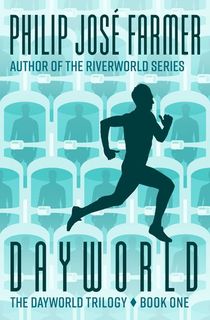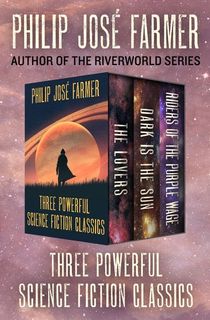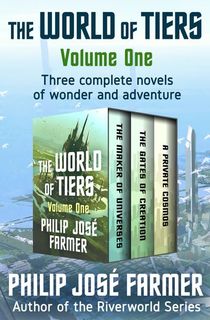I live in Brooklyn, New York City’s most populous borough—home to more than 2,600,000 people as of the 2015 census estimate. Most of them seem to ride my subway line. I’m certain they all shop at my local grocery. On Saturday night we all seem to go out to the movies together.
So I naturally gravitated to the underlying concept of Dayworld, which is set in a dystopian future Earth so overpopulated that the ruling body has taken drastic measures. The citizenry of the world has been divided into seven groups. Each group is allowed to be awake only one day out of the week. The rest of the time, they are “stoned”—held in suspended animation while others use their living space, work their jobs, and consume their share of available resources.
The Mondays never meet the Thursdays. The Fridays have no connection to the Saturdays. And to keep everyone to their particular day, the activities of all citizens of the Organic Commonwealth of Earth are closely monitored.
Want more science fiction books? Sign up for The Portalist's newsletter and get stellar stories delivered straight to your inbox.
However, a few are fighting to change the system. The “immers” are a group of rebels secretly fighting the world government and challenging the constant surveillance of their lives. Jeff Caird, the main character of Dayworld, has found a way to avoid being stoned. He’s a daybreaker: awake every day of the week, and able to move freely from day to day—but at a price. He has developed seven different identities, seven families, seven careers that must be continually fostered if he is to keep up his dangerous façade.
And when Jeff slips up, as seems almost inevitable, the daybreaker becomes a wanted man.
Dayworld, which is followed by the continuing adventures Dayworld Rebel and Dayworld Breakup, was not the first work I discovered by Philip José Farmer. That would have been “Riders of the Purple Wage,” a mindbending, James Joyce-ian stream-of-consciousness amazement of a novella that I read when it was first published in Harlan Ellison’s groundbreaking anthology Dangerous Visions. It too featured a dystopian future, a cradle-to-grave welfare state in which the young artist Chib must withstand governmental scrutiny and oppression. It won the Hugo Award in 1968.
Then there was The Lovers, which back in 1953 won Farmer the Hugo Award for Most Promising New Talent (a Hugo category that no longer exists). The Lovers, with its frank discussion of sex outside of marriage, was extremely controversial when it was first published—hot stuff for the early ‘50s! Yet its sympathetic portrayal of a man far from home and Farmer’s concept of a truly unique type of alien make it well worth reading today.
Many people know Farmer best for his Riverworld series and the World of Tiers books, both of which imagine vast worlds only just able to contain the breadth of his imagination.
Farmer is an author well worth seeking out, for the startling variety of his work and for the worlds he so loved to create.
Want more science fiction books? Sign up for The Portalist's newsletter and get stellar stories delivered straight to your inbox.
This post is sponsored by Open Road Media. Thank you for supporting our partners, who make it possible for The Portalist to continue publishing the stellar stories you love.



